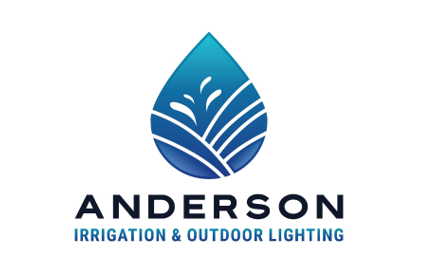Blog
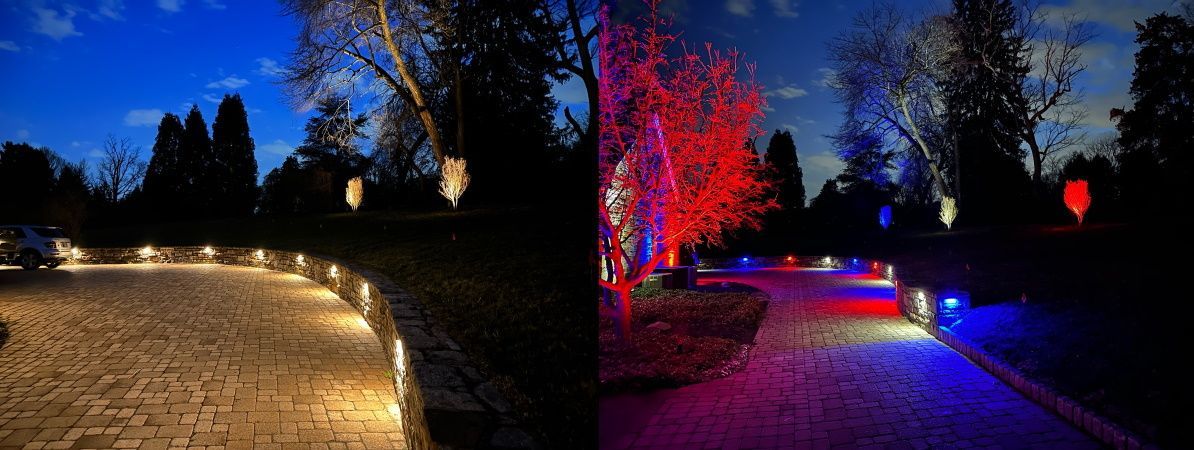
By: Clay Anderson / December 2, 2024 The Benefits of Color-Changing Low Voltage Lighting for Outdoor Spaces When it comes to enhancing your outdoor living areas, lighting plays a crucial role in setting the mood, improving safety, and adding aesthetic appeal. Color-changing low voltage lighting is a versatile and energy-efficient solution that can completely transform your outdoor spaces. Whether you’re lighting up a garden, pathway, patio, or pool area, this lighting option offers a range of benefits that go beyond simple illumination. Let’s explore why color-changing low voltage lighting should be on your radar for your next outdoor lighting upgrade. 1. Energy Efficiency and Cost Savings One of the most appealing features of low voltage lighting is its energy efficiency. Compared to traditional high-voltage lighting systems, low voltage LEDs use significantly less power, which can make a big difference on your electricity bill. Outdoor lighting often stays on for hours, especially in the evenings, so making the switch to low voltage LEDs can result in substantial long-term savings. In addition to the lower energy consumption, LED bulbs also have a much longer lifespan than conventional incandescent or halogen bulbs. This means fewer replacements and even more savings over time, making them an investment that pays off in the long run. 2. Customization and Ambiance One of the standout features of color-changing low voltage lighting is the ability to adjust the colors to fit the mood, occasion, or season. Imagine illuminating your garden with calming shades of blue or green for a relaxing evening or switching to vibrant reds and greens for a holiday gathering. The flexibility to change the lighting color at the touch of a button gives you complete control over the ambiance of your outdoor space. You can also set different color schemes depending on the time of year. For instance, warmer tones like orange and yellow can create a cozy, fall-inspired atmosphere, while cool colors like blue and purple are perfect for summer nights by the pool. The options are endless! 3. Highlighting Landscaping and Architectural Features Low voltage color-changing lights are ideal for highlighting the beauty of your outdoor space. Whether it’s a sculpted tree, a stunning flower bed, a garden path, or an elegant water feature, these lights can bring attention to your landscape and architectural details in a dynamic way. For instance, you can accentuate the unique textures of your home’s exterior with warm white lights or create a dramatic effect by casting a soft glow on a garden wall. The ability to switch colors means you can create different effects depending on the desired look—green for lush foliage, blue for a serene pool area, or even red for a festive outdoor celebration. Not only does this enhance the visual appeal of your home, but it also ensures that your outdoor spaces are always looking their best, day or night. 4. Increased Curb Appeal and Home Value Well-designed outdoor lighting doesn’t just make your home look beautiful; it can also increase its curb appeal and overall value. When potential buyers drive by your home in the evening, a thoughtfully illuminated exterior will make a lasting impression. Color-changing lights allow you to make a statement with your home’s design, whether you're illuminating a grand entrance or highlighting unique landscaping features. The ability to change colors also means you can tailor your lighting to reflect different seasons or festivities. For example, vibrant red and green lighting for the holidays or white lights to highlight a summer garden party can help your home stand out. In the competitive real estate market, a well-lit home with creative outdoor lighting solutions can set your property apart from the rest. 5. Improved Safety and Security In addition to the aesthetic and ambiance benefits, color-changing low voltage lights also offer significant improvements in safety and security. Outdoor areas that are well-lit are less likely to become targets for burglars, as bright, visible spaces act as a deterrent. You can also use your lighting to improve visibility around walkways, stairs, and driveways, reducing the risk of accidents, especially at night. Pathway lights or step lights can help guests navigate your property safely, while strategic lighting around gates, entrances, or garage areas ensures that your home is always well-lit. The ability to adjust light intensity and color can be especially helpful, too. You can choose bright, white lighting for security and functional purposes or opt for softer hues when you want to create a relaxed atmosphere for outdoor entertaining. 6. Easy Maintenance LED bulbs have a long lifespan (often 25,000+ hours), meaning you won’t have to worry about replacing them frequently, unlike traditional incandescent or halogen bulbs. This low maintenance makes color-changing low voltage lights an excellent, hassle-free option for homeowners. 7. Environmental Benefits Another reason to consider color-changing low voltage lighting is its eco-friendliness. LED technology is much more energy-efficient than older lighting technologies, which means it uses less electricity and reduces your overall energy consumption. This contributes to a lower carbon footprint, making LED lights a greener choice for homeowners looking to reduce their environmental impact. Moreover, LEDs generate far less heat than incandescent bulbs, which is an added bonus in warmer months when you don’t want extra heat buildup around your home. This makes LED lighting a cooler, more sustainable choice for all your outdoor lighting needs. Conclusion From creating a stunning visual impact to improving safety and security, color-changing low voltage lighting offers a range of benefits that can enhance your outdoor living spaces. Whether you’re looking to boost curb appeal, save on energy costs, or create the perfect ambiance for entertaining, low voltage lighting can do it all. With customizable color options, easy installation, and low maintenance, it’s an investment that not only beautifies your home but also makes it more energy-efficient and functional. If you’re looking to upgrade your outdoor lighting, consider color-changing low voltage lighting as a smart, stylish choice for your next project. Your home will shine brighter, safer, and more beautifully than ever before! Follow Us,
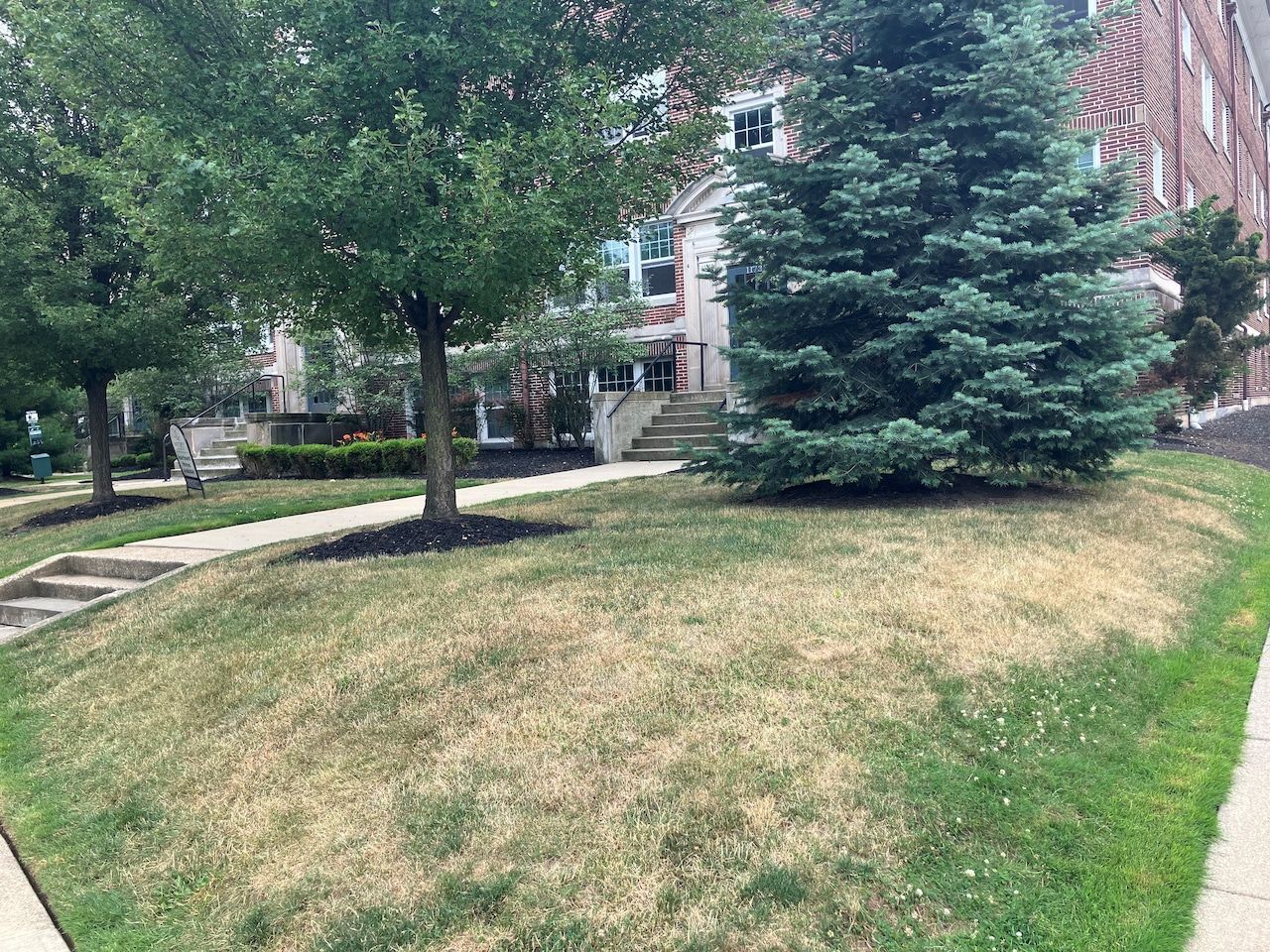
By: Clay Anderson / September 1, 2024 Drought conditions can be challenging for gardeners and homeowners who rely on in-ground irrigation systems. With water restrictions and the need for conservation, it’s essential to adopt efficient watering techniques that ensure your landscape thrives despite limited water availability. Here’s a guide to maximizing the effectiveness of your in-ground irrigation system during drought conditions. 1. Understand Your Soil Type The first step in optimizing your irrigation system is understanding the type of soil in your garden. Sandy soils drain quickly and require more frequent watering, while clay soils retain moisture longer but can become compacted. Loamy soils, a mix of sand, silt, and clay, are ideal for most plants. Knowing your soil type will help you adjust your watering schedule to meet the specific needs of your garden. 2. Inspect and Maintain Your Irrigation System Regular maintenance is crucial for ensuring your irrigation system operates efficiently. Check for leaks, broken sprinkler heads, and clogged nozzles, as these can waste water. Adjust sprinkler heads to avoid watering sidewalks, driveways, and other non-vegetated areas. Ensuring your system is in top condition will prevent water loss and ensure that every drop counts. 3. Schedule Watering During Optimal Times Timing is everything when it comes to watering during a drought. The best time to water is early in the morning when temperatures are cooler, and evaporation rates are lower. Avoid watering during the heat of the day, as much of the water will evaporate before it reaches the roots. 4. Implement Cycle and Soak Irrigation Cycle and soak irrigation involves watering in short, repeated cycles rather than one long session. This technique allows water to penetrate the soil more deeply and reduces runoff, especially in compacted or sloped areas. For example, instead of watering for 30 minutes straight, water for 10 minutes, wait for an hour, and then water again. This method ensures that water is absorbed effectively, making the most of limited water resources. 5. Incorporate Mulch Mulching around plants is an excellent way to retain soil moisture. Organic mulches, such as wood chips, straw, or compost, create a barrier that reduces evaporation, keeps the soil cool, and suppresses weeds that compete for water. Mulch also helps improve soil structure over time, enhancing its ability to retain moisture. 6. Group Plants by Water Needs If possible, group plants with similar water needs together. This practice, known as hydrozoning, allows you to tailor your irrigation schedule to the specific requirements of different areas in your garden. For instance, drought-tolerant plants can be watered less frequently, while more water-intensive plants receive the attention they need. 7. Use Smart Controllers Smart irrigation controllers automatically adjust watering schedules based on local weather conditions, such as rainfall, temperature, and humidity. These devices help ensure that your garden gets the right amount of water, even during fluctuating drought conditions. Smart controllers can be a significant investment, but they often pay for themselves in water savings. Conclusion Managing an in-ground irrigation system during drought conditions requires a combination of smart techniques, regular maintenance, and sometimes a bit of technological assistance. By understanding your soil, optimizing your watering schedule, and employing efficient irrigation methods, you can help your garden withstand the stresses of drought while conserving precious water resources. Follow Us,
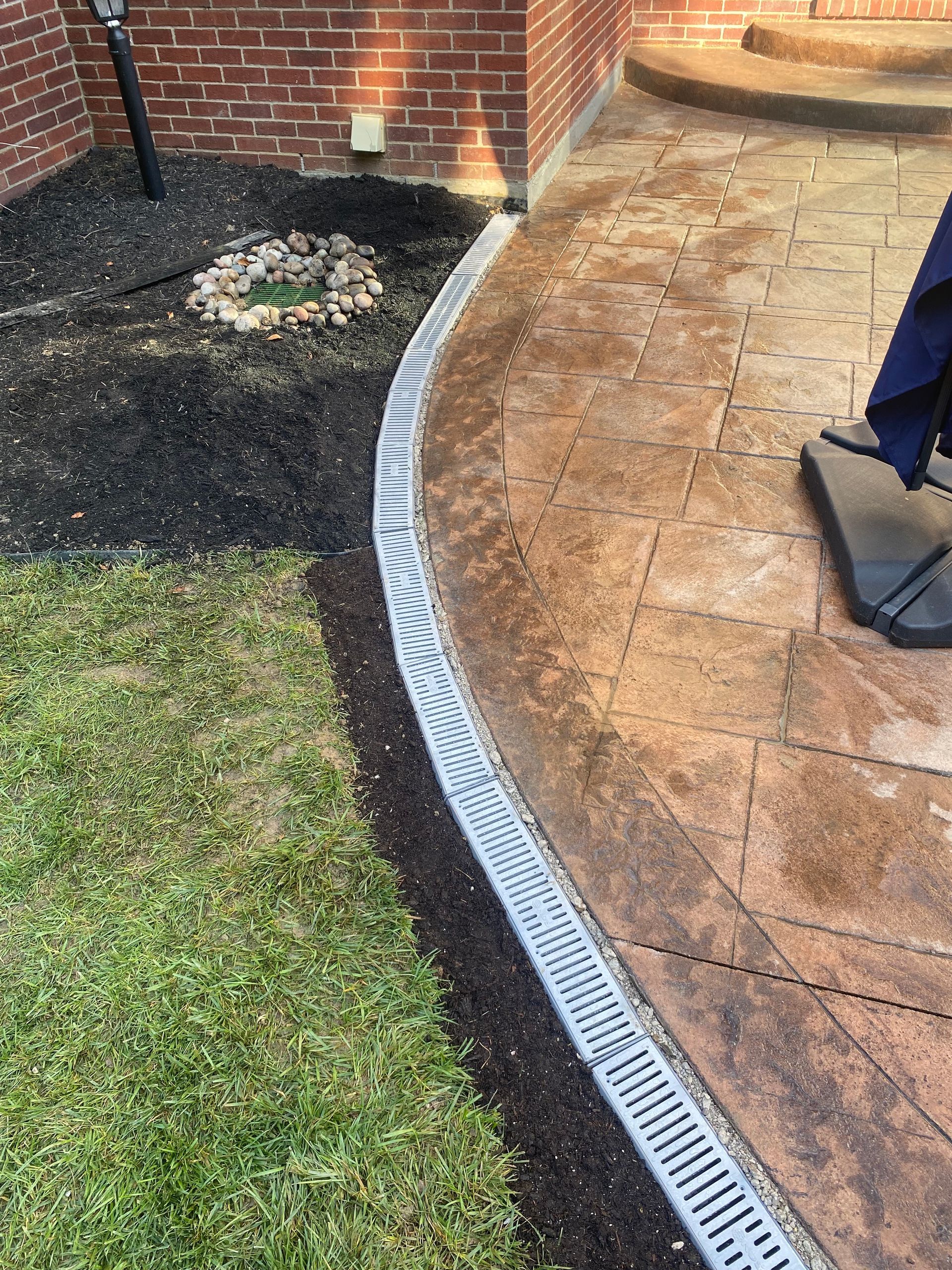
By: Clay Anderson / August 1, 2024 Standing water around your home is more than just an inconvenience; it can cause significant damage to your property, lead to foundation problems, and create a breeding ground for pests. Addressing this issue effectively requires choosing the right drainage system tailored to your specific needs. In this blog, we'll explore various drainage solutions to help you make an informed decision. Understanding the Problem: Causes of Standing Water Before diving into the solutions, it's essential to understand why standing water occurs. Common causes include: Poor Soil Drainage: Clay-heavy soils tend to retain water, leading to puddles and standing water after rainfall. Improper Grading: If your yard slopes toward your house instead of away from it, water can accumulate near the foundation. Blocked Gutters and Downspouts: Clogged or improperly directed downspouts can dump water near your home, creating pooling areas. High Water Table: In some areas, the water table is naturally high, leading to frequent standing water, especially after rain. Identifying the root cause of the issue will guide you in choosing the most effective drainage solution. 1. French Drain: A Versatile Solution A French drain is one of the most popular solutions for managing standing water. This system involves a trench filled with gravel and a perforated pipe that directs water away from problem areas. Ideal For: Yards with poor soil drainage. Areas where water tends to pool after rain. How It Works: Water enters the trench and is channeled through the perforated pipe to a designated drainage area, such as a dry well or storm drain. French drains are particularly effective at managing surface and groundwater, making them a versatile solution for many homeowners. Installation Considerations: Requires digging a trench, which can be labor-intensive. Needs regular maintenance to prevent clogging. 2. Surface Drains: Direct and Efficient Surface drains are designed to capture and redirect water from specific areas, such as driveways, patios, or lawns. Ideal For: Flat areas where water collects. Driveways, patios, and other hardscaped surfaces. How It Works: Surface drains typically consist of grates connected to a network of underground pipes. Water enters through the grates and is directed away from the property to a storm drain or other discharge point. Installation Considerations: Easier to install in flat areas. Requires proper placement to ensure water flows into the drains. 3. Dry Wells: Natural Water Absorption A dry well is an underground structure that collects and disperses water into the surrounding soil, allowing it to absorb naturally. Ideal For: Areas with moderate standing water issues. Homes with permeable soil that can absorb water effectively. How It Works: Water is directed into the dry well, where it slowly percolates into the surrounding soil. This method is environmentally friendly and helps replenish groundwater levels. Installation Considerations: Requires permeable soil for effective absorption. May need periodic maintenance to prevent clogging. 4. Swales: Contour-Based Drainage A swale is a shallow, vegetated channel designed to redirect water flow across the landscape. Ideal For: Large yards or properties with significant landscaping. Areas where you want to integrate drainage with natural aesthetics. How It Works: Swales are typically designed to follow the natural contours of the land, capturing and redirecting water toward a designated drainage area. They can be lined with grass, gravel, or other materials to aid water absorption. Installation Considerations: Requires careful planning to align with the natural landscape. Can be combined with other drainage systems for enhanced effectiveness. Making the Right Choice: Factors to Consider When choosing the right drainage system for your home, consider the following factors: Soil Type: Understanding your soil’s drainage capacity will help determine the best system. For example, French drains and dry wells work well in permeable soils, while swales are better suited for larger, landscaped areas. Yard Slope and Grading: The natural contours of your property will influence water flow. Surface drains and swales are effective in managing water in flat or gently sloping areas. Severity of the Issue: The extent of standing water will dictate whether you need a simple surface drain or a more comprehensive solution. Budget and Maintenance: Consider the cost of installation and ongoing maintenance. Some systems, like French drains, require more upfront work but are low-maintenance. Conclusion Standing water is a common issue that, if left unaddressed, can lead to significant property damage and health concerns. By understanding the underlying causes and selecting the right drainage system for your home, you can protect your property and maintain a healthy, dry environment. Whether you opt for a French drain, surface drain, dry well, or swale, the key is to tailor the solution to your specific needs, ensuring effective and long-lasting results. Follow Us,
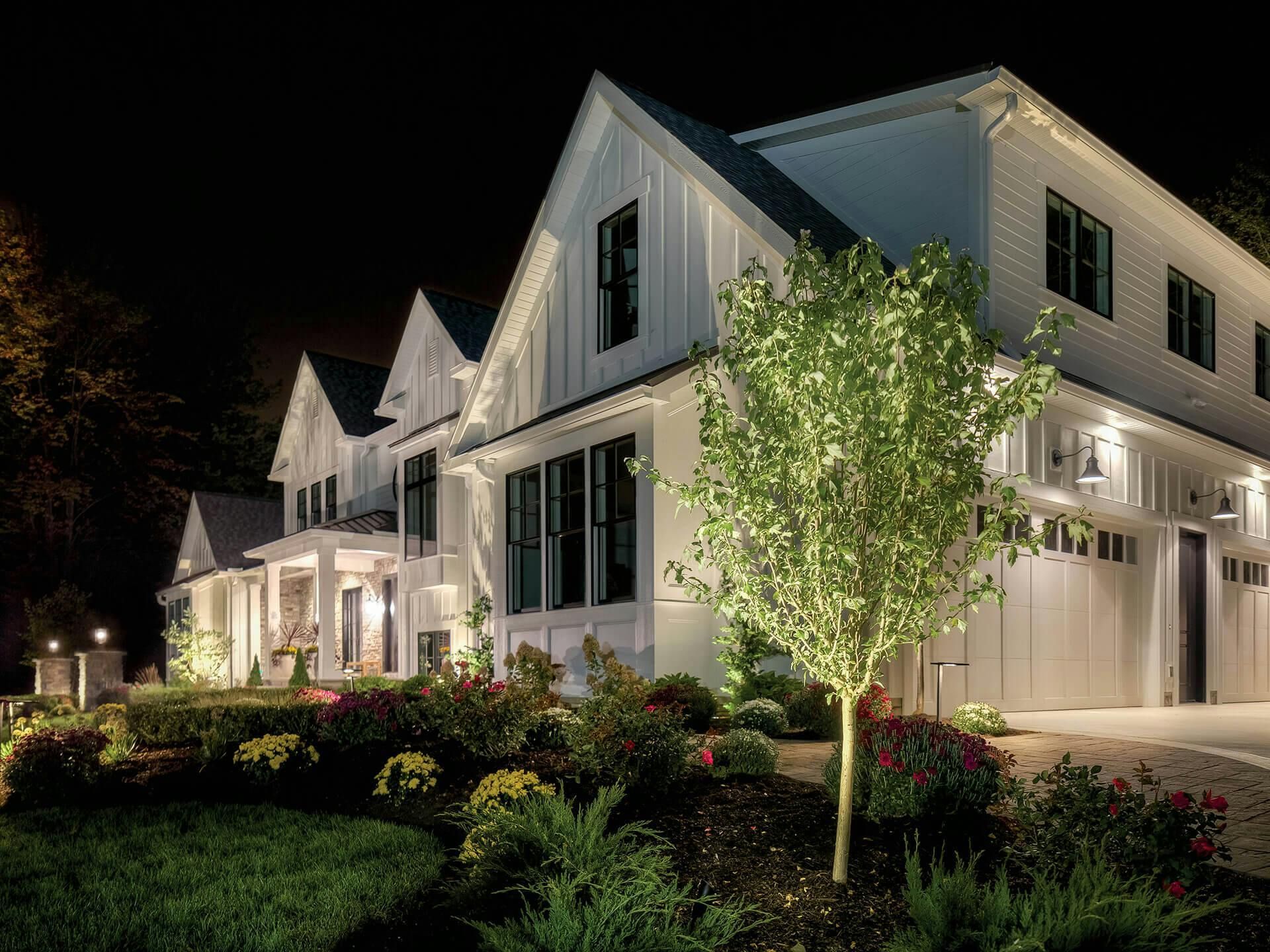
By: Clay Anderson / July 1, 2024 Outdoor lighting plays a crucial role in enhancing the aesthetics, safety, and security of our homes. Traditionally, halogen lights have been a popular choice for outdoor lighting due to their bright and clear illumination. However, with the advent of LED technology, more homeowners are making the switch from halogen to LED. If you're considering this change, here are some compelling reasons why switching to LED is a smart and sustainable choice. 1. Energy Efficiency One of the most significant advantages of LED lighting is its energy efficiency. LEDs use up to 85% less energy than halogen bulbs. This substantial reduction in energy consumption not only lowers your electricity bills but also reduces your carbon footprint. By switching to LED, you're contributing to a more sustainable and environmentally friendly lifestyle. 2. Longer Lifespan LED lights have an impressive lifespan compared to halogen bulbs. While a typical halogen bulb lasts about 2,000 to 4,000 hours, an LED bulb can last anywhere from 20,000 to 50,000 hours or more. This means fewer replacements and less maintenance, saving you time and money in the long run. 3. Durability and Reliability LED lights are more durable and reliable than halogen bulbs. They are designed to withstand harsh weather conditions, making them ideal for outdoor use. LEDs are resistant to shock and vibration, ensuring they continue to function optimally even in adverse environments. 4. Better Light Quality LEDs offer superior light quality with better color rendering and brightness. They provide a clear and consistent light output, enhancing visibility and security around your home. Additionally, LEDs come in various color temperatures, allowing you to choose the perfect ambiance for your outdoor spaces. 5. Environmentally Friendly LED lights are free from harmful chemicals like mercury, which is commonly found in halogen bulbs. They are fully recyclable, reducing waste and environmental impact. By choosing LEDs, you're making a positive contribution to environmental conservation. 6. Cost Savings While the initial cost of LED bulbs may be higher than halogen bulbs, the long-term savings are substantial. Lower energy bills, fewer replacements, and reduced maintenance costs all contribute to significant savings over time. The return on investment for LED lighting is typically very high, making it a cost-effective choice in the long run. 7. Improved Safety LED lights generate very little heat compared to halogen bulbs, which can get extremely hot. This reduced heat emission lowers the risk of fire hazards and makes LEDs a safer option for outdoor lighting. Additionally, LEDs operate at low voltage, further enhancing safety, especially in wet conditions. 8. Versatility LED lighting offers great versatility in design and application. They are available in various shapes, sizes, and configurations, allowing you to customize your outdoor lighting to suit your specific needs and preferences. From pathway lights and garden spots to security lights and decorative fixtures, LEDs can be used in numerous outdoor applications. Conclusion Switching your outdoor lighting from halogen to LED is a smart decision that brings numerous benefits. From energy efficiency and cost savings to better light quality and environmental friendliness, LEDs offer a superior lighting solution for your outdoor spaces. By making the switch, you not only enhance the aesthetics and functionality of your outdoor areas but also contribute to a more sustainable future. So, take the plunge and make the switch to LED lighting – your wallet, home, and the planet will thank you. Follow Us,
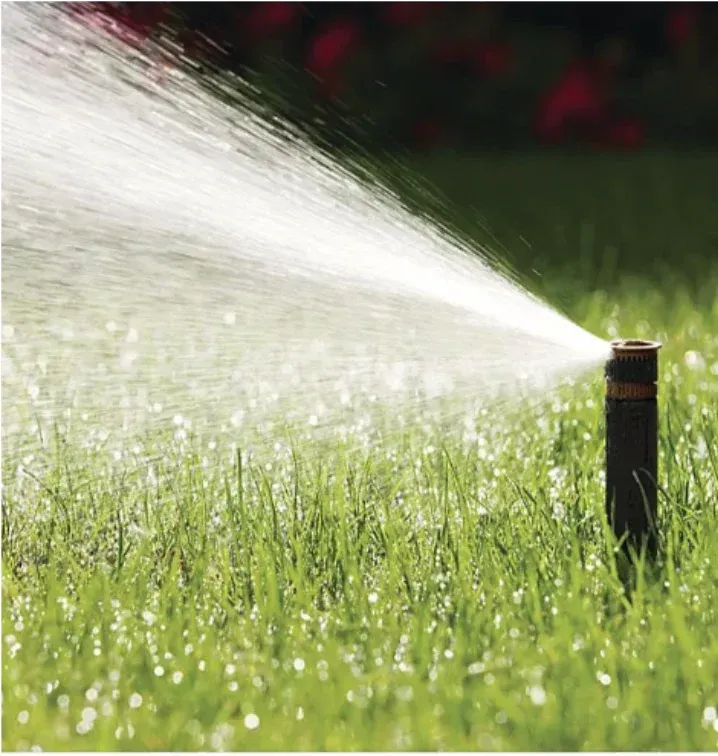
By: Clay Anderson / June 4, 2024 As summer approaches, maintaining a healthy, vibrant lawn and garden becomes a priority. Proper irrigation is crucial to ensure your plants thrive in the heat. Programming your irrigation system effectively can save water, reduce costs, and ensure your lawn and garden stays lush. Here’s a comprehensive guide to help you set up your irrigation system for the summer months. Understanding Your Irrigation Needs Before diving into programming, it's important to assess your lawn and garden’s specific watering requirements. Different plants have varying water needs, and factors such as soil type, climate, and sun exposure play a significant role. Here are some key considerations: • Plant Types: Identify which plants need more water (e.g., vegetables, flowers) and which are drought-resistant (e.g., succulents, native grasses). • Soil Type: Sandy soils drain quickly and may require more frequent watering, while clay soils retain moisture longer. • Climate: In hotter, drier climates, your garden will need more water compared to cooler, more humid regions. • Sun Exposure: Areas exposed to full sun will need more water than shaded areas. Setting Up Your Irrigation Schedule 1. Choose the Right Time of Day: Watering early in the morning (between 4 a.m. and 10 a.m.) is ideal. This allows water to soak into the soil before the heat of the day causes evaporation. Evening watering can lead to fungal growth due to prolonged moisture on plant leaves. 2. Frequency and Duration: o Lawn: Typically, lawns need about 1-1.5 inches of water per week. This can be split into multiple watering sessions. o Garden Beds: Most garden plants require about 1 inch of water per week. Drip irrigation systems can be programmed to run for about 30 minutes to an hour every few days, depending on your soil type and weather conditions. o Potted Plants: These may need daily watering, especially in hotter climates, as pots dry out faster than ground soil. 3. Adjusting for Weather Conditions: Install a weather sensor or a smart irrigation controller that adjusts watering schedules based on local weather conditions. If rain is forecasted, the system will skip a scheduled watering, saving water and preventing overwatering. Using Technology to Your Advantage Modern irrigation systems come with a variety of features that can make programming and managing your watering schedule easier and more efficient. • Smart Controllers: These devices connect to Wi-Fi and can be controlled via a smartphone app. They often come with weather monitoring capabilities and can make real-time adjustments based on weather forecasts. • Soil Moisture Sensors: These sensors measure the moisture level in the soil and adjust the irrigation schedule accordingly. They ensure that your plants get just the right amount of water, preventing both under and overwatering. • Rain Sensors: These sensors can pause your irrigation system during rainfall, preventing unnecessary watering and conserving water. Maintenance Tips 1. Regular Inspections: Check your irrigation system regularly for leaks, clogs, or broken sprinkler heads. Ensure that all components are working efficiently. 2. Seasonal Adjustments: As temperatures and weather patterns change, adjust your irrigation schedule accordingly. In the peak of summer, you may need to increase watering frequency, while in cooler periods, you can scale back. 3. Zone Management: Divide your garden into zones based on plant types and their water needs. Program each zone individually to provide the appropriate amount of water, ensuring optimal growth and water efficiency. By following these tips and leveraging modern irrigation technology, you can create an efficient and effective watering schedule for your lawn and garden. This will ensure your plants remain healthy and vibrant throughout the summer months while conserving water and reducing costs. Follow Us,
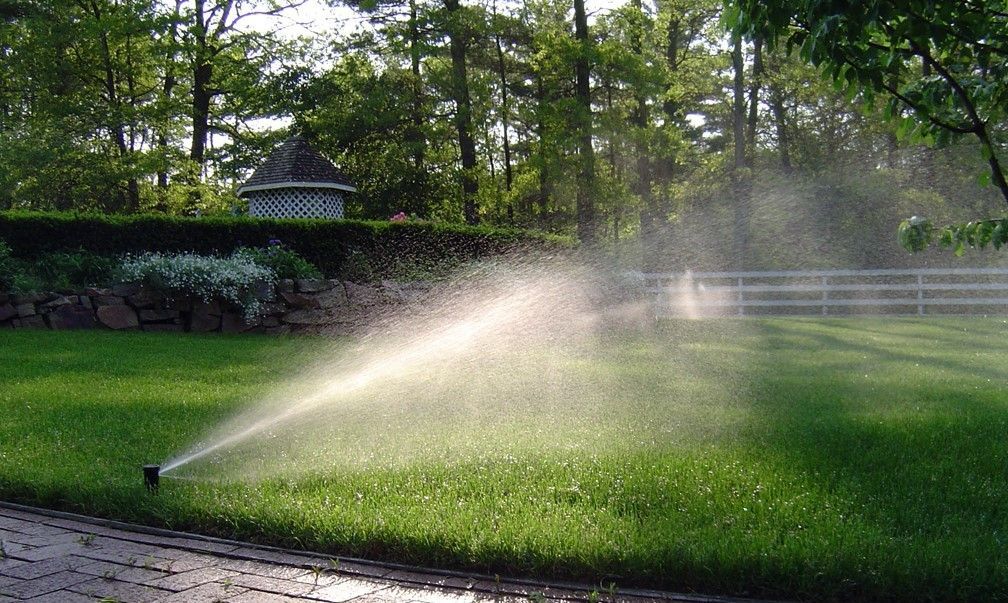
By: Clay Anderson / April 5, 2024 Introduction: An irrigation system is the backbone of any thriving landscape, delivering essential water to plants and green spaces. As technology advances and environmental concerns grow, upgrading your irrigation system becomes increasingly vital. While DIY upgrades may seem like a feasible option, entrusting this task to a professional offers numerous benefits that go beyond mere convenience. Expert Assessment and Recommendations: Professional irrigation technicians possess specialized knowledge and experience in assessing irrigation systems. They can identify inefficiencies, outdated components, and areas for improvement that may not be apparent to the untrained eye. By conducting a comprehensive evaluation, they can recommend upgrades tailored to your specific needs and landscape requirements. Enhanced Efficiency and Water Conservation: Efficiency is paramount when it comes to irrigation systems. Outdated or poorly designed systems may waste water through leaks, evaporation, or inefficient distribution. Professional upgrades focus on maximizing efficiency and minimizing water wastage. This may involve installing smart controllers, drip irrigation systems, or soil moisture sensors that adjust water delivery based on real-time conditions, resulting in significant water savings over time. Customized Solutions for Optimal Performance: Every landscape is unique, with varying soil types, plant species, and environmental factors. Professional irrigation technicians understand these complexities and design upgrades tailored to your property's specific needs. Whether you require improved coverage for a newly landscaped area or upgraded components to address water pressure issues, professionals can implement solutions that ensure optimal performance and plant health. Compliance with Regulations and Standards: In many regions, there are regulations and standards governing irrigation system design and operation, particularly concerning water conservation measures. Professional technicians stay up to date on these regulations and ensure that your upgraded system meets all necessary requirements. By adhering to local codes, you not only avoid potential fines but also contribute to sustainable water usage practices. Long-Term Cost Savings: While the initial investment in professional irrigation system upgrades may seem significant, the long-term cost savings justify the expense. Upgraded systems operate more efficiently, resulting in lower water bills and reduced maintenance costs over time. Additionally, by optimizing water usage and promoting plant health, professional upgrades can minimize the need for costly replacements and repairs in the future. Expert Installation and Ongoing Support: Professional irrigation companies offer comprehensive services, from design and installation to ongoing maintenance and support. Trained technicians ensure that upgrades are installed correctly and function seamlessly with existing components. Moreover, they provide valuable guidance on system operation, scheduling, and troubleshooting, ensuring that your upgraded system continues to perform optimally for years to come. Conclusion: Investing in professional irrigation system upgrades is a proactive step towards enhancing the efficiency, sustainability, and longevity of your landscape. By leveraging the expertise and experience of trained technicians, you can achieve significant water savings, promote healthy plant growth, and minimize long-term costs. Don't settle for outdated or inefficient irrigation systems—choose professional upgrades for a greener, more sustainable future. Follow Us,
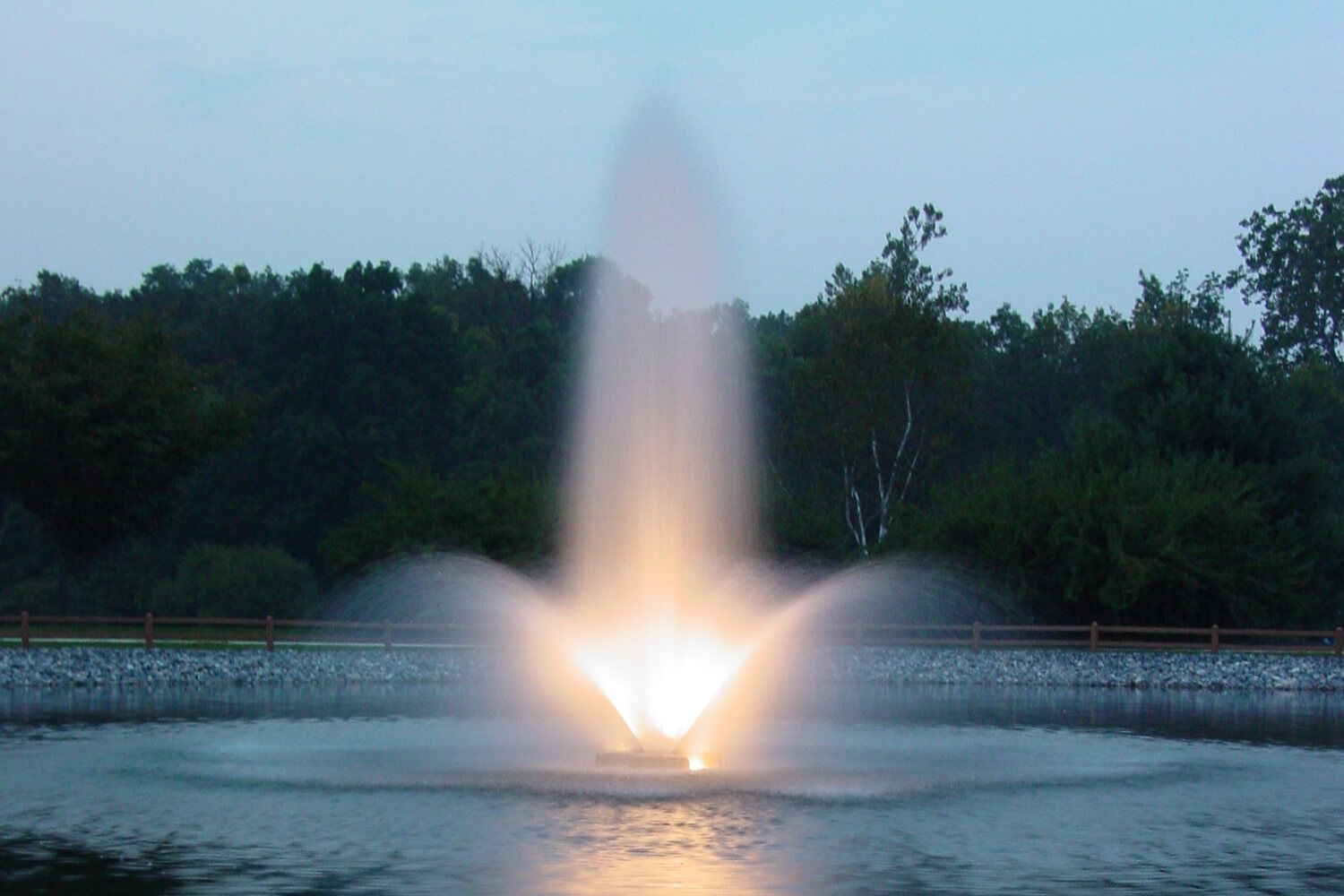
By: Clay Anderson / February 4, 2024 Maintaining a healthy pond ecosystem requires more than just clear water; it demands a strategic approach to oxygenation. We will explore two popular pond aeration methods – Subsurface Diffuser Aeration and Floating Fountain Aeration – each with its unique benefits and applications. Whether you are managing a private oasis or an ornamental water feature, understanding these techniques is key to achieving optimal water quality and a thriving aquatic environment. Subsurface Diffuser Aeration: Description: Subsurface diffuser aeration involves the installation of diffusers on the pond's bottom, releasing fine bubbles that rise to the surface. These diffusers are typically connected to a compressor onshore, ensuring a continuous supply of oxygen to the water. Benefits: Prevention of Stratification: Subsurface diffusers disrupt thermal stratification, preventing the formation of distinct layers of water temperature. Enhanced Oxygen Transfer: The fine bubbles increase the surface area for oxygen exchange, promoting efficient gas transfer and improving overall oxygen levels. Reduction of Algae and Odors: By maintaining well-oxygenated conditions, subsurface aeration discourages the growth of algae and helps mitigate unpleasant odors caused by anaerobic processes. Ideal for: Deeper Ponds: Subsurface diffusers are particularly effective in ponds with greater depth, ensuring oxygen reaches the lower layers where it is often needed most. Large Bodies of Water: Suitable for lakes, reservoirs, or ponds with expansive surface areas. Considerations: Installation: Requires installation by trained professionals to optimize diffuser placement for maximum efficiency. Energy Consumption: While efficient, the continuous operation of compressors may contribute to energy costs. Floating Fountain Aeration: Description: Floating fountains are not just visually appealing; they serve a functional purpose by creating surface agitation and introducing oxygen into the water through splashing and aeration devices. Benefits: Aesthetic Appeal: Floating fountains enhance the visual appeal of ponds, providing a dynamic focal point that complements landscaping. Surface Oxygenation: Agitation caused by the fountain promotes oxygen transfer between air and water, benefiting fish and other aquatic life. Algae Control: By preventing still water conditions, floating fountains hinder algae growth, contributing to water clarity. Ideal for: Ornamental Ponds: Ideal for ponds where aesthetic appeal is a priority, such as residential gardens, parks, or golf courses. Shallow Ponds: Effective in shallower bodies of water where subsurface diffusers may be less practical. Considerations: Power Source: Requires access to electricity to power the fountain's pump, limiting placement options in some cases. Maintenance: Regular maintenance is necessary to keep the fountain in optimal condition and prevent clogging. Conclusion: Subsurface diffuser and floating fountain aeration represent two distinct approaches to pond oxygenation, each catering to specific needs and preferences. Whether you prioritize functionality, as in the case of subsurface diffusers, or seek to enhance the visual appeal of your pond with a floating fountain, a well-informed decision will contribute to the overall health and beauty of your pond. By understanding the nuances of these aeration methods, pond enthusiasts can make informed choices to create a balanced and vibrant ecosystem. Follow Us,

By: Clay Anderson / January 5, 2024 Introduction: Outdoor lighting plays a crucial role in enhancing the aesthetics, safety, and functionality of your outdoor spaces. With advancements in technology, there is a wide array of outdoor lighting control options available to suit different preferences and needs. In this blog, we will explore various outdoor lighting control options, helping you make informed decisions to create the perfect ambiance for your outdoor living spaces. 1. Traditional Switches and Timers: The most basic form of outdoor lighting control involves traditional switches and timers. Manual switches allow you to turn lights on and off as needed, while timers enable you to schedule lighting based on specific times. Pros: Simple and cost-effective. Cons: Limited customization and energy efficiency. 2. Motion Sensors: Motion sensors detect movement and activate lights accordingly. They are ideal for enhancing security and reducing energy consumption by only illuminating areas when necessary. Pros: Energy-efficient, enhances security, and convenient. Cons: May be triggered by false alarms like wildlife or passing cars. 3. Photocells: Photocells, also known as dusk-to-dawn sensors, automatically turn lights on at dusk and off at dawn. They rely on ambient light levels to make decisions. Pros: Energy-efficient and low-maintenance. Cons: Limited customization and may not respond to changing weather conditions. 4. Smart Lighting Systems: Smart lighting systems allow for advanced control through smartphone apps, voice commands, or automation platforms. They often include features like color changing, dimming, and scheduling. Pros: High customization, remote control, energy-efficient, and integration with other smart home devices. Cons: Initial cost may be higher, and reliance on stable internet connectivity. 5. Zoning and Dimming: Zoning divides outdoor lighting into different areas, each with its control, while dimming allows you to adjust the brightness levels. Both features provide flexibility and ambiance control. Pros: Customizable ambiance, energy efficiency, and versatility. Cons: Requires a more complex installation process. Conclusion: Choosing the right outdoor lighting control option depends on your preferences, budget, and the specific needs of your outdoor space. Whether you opt for the simplicity of traditional switches or embrace the advanced features of smart lighting systems, the goal is to create a well-lit, inviting, and secure outdoor environment. Experiment with different options to find the perfect combination that enhances both the functionality and aesthetics of your outdoor living spaces. Follow Us,
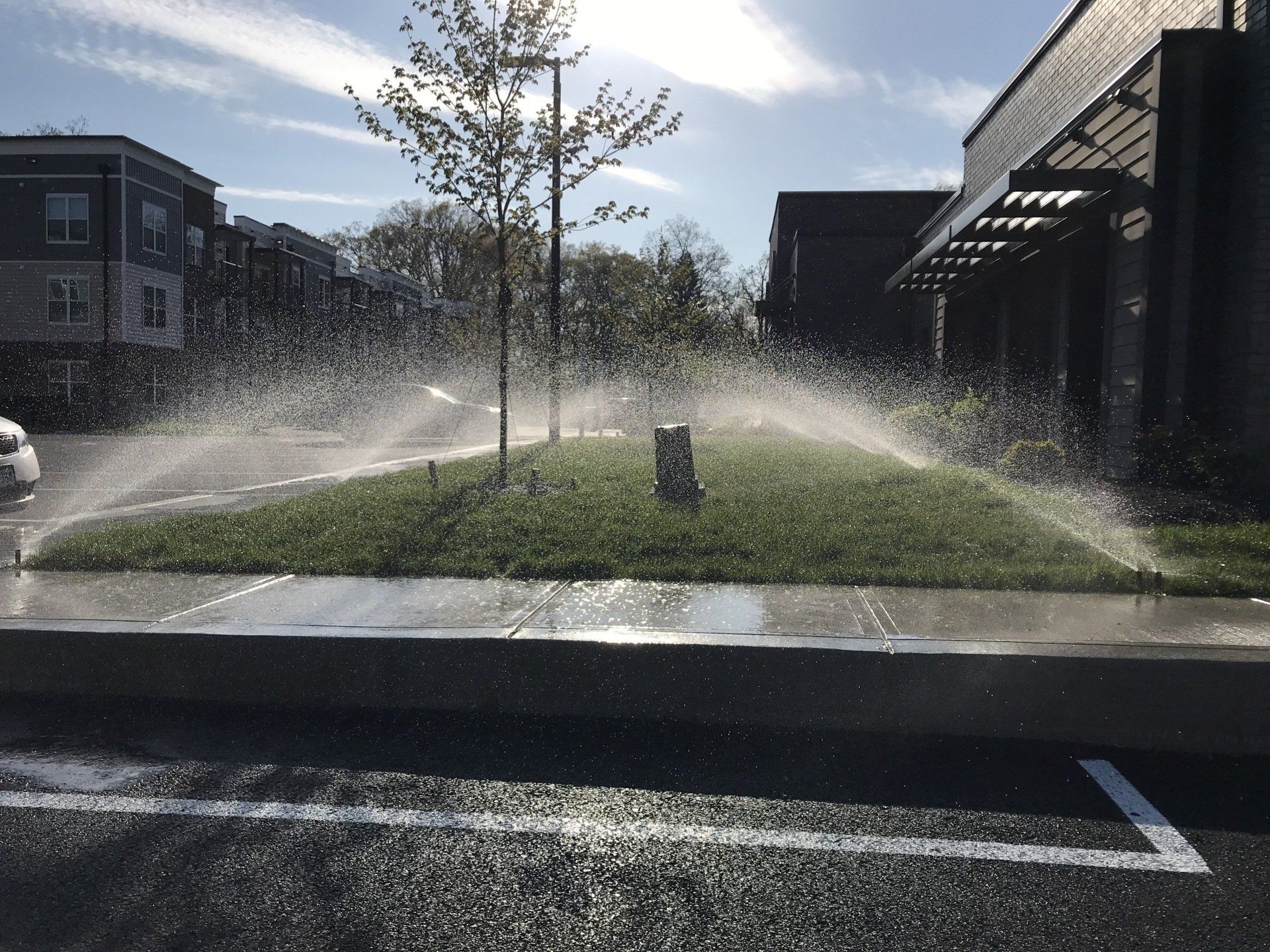
By: Clay Anderson / December 5, 2023 Introduction: Achieving the perfect landscape requires more than just a green thumb; it demands precision and expertise, especially when it comes to watering. A professional sprinkler system installation can transform your outdoor space, providing a hassle-free and efficient way to keep your plants thriving. In this blog post, we'll explore the world of sprinkler system installation with a professional touch, ensuring your landscape gets the care it truly deserves. I. The Professional Advantage 1. Expertise in Landscape Assessment: Professional sprinkler system installers bring years of experience to the table. They assess your landscape comprehensively, considering factors such as soil type, plant variety, and sun exposure. This expertise ensures that the system is customized to meet the unique needs of your landscape. 2. Tailored System Design: Professionals employ a meticulous approach to system design. They strategically plan the layout, taking into account the specific water requirements of different areas in your landscape. This attention to detail ensures optimal water distribution and promotes the health of your plants. II. Seamless Integration of Technology 1. Smart Controllers and Automation: Professionals often recommend and install smart controllers that allow for automated and intelligent watering. These systems can be programmed to adjust watering schedules based on weather conditions, saving water and adapting to the changing needs of your landscaping. 2. High-Quality Materials and Equipment: Working with professionals ensures the use of top-notch materials and equipment. From durable PVC pipes and fittings to advanced sprinkler heads, every component is chosen with longevity and efficiency in mind. III. The Installation Process 1. Efficient Trenching and Pipe Layout: Professionals employ efficient trenching techniques, minimizing disruption to your landscape. The careful layout of pipes and fittings is executed with precision, ensuring a seamless and tidy installation. 2. Precision with Valves and Sprinkler Heads: Control valves and sprinkler heads are strategically placed to create distinct watering zones. This precision allows for a fine-tuned system that addresses the diverse needs of your landscape, from flower beds to lawns. IV. Rigorous Testing and Calibration 1. Thorough System Testing: Before declaring the installation complete, professionals conduct rigorous system tests. This includes checking for leaks, adjusting sprinkler head angles, and ensuring uniform water distribution across all zones. 2. Client Education: Professionals take the time to educate clients on the system's operation and maintenance. This empowers homeowners to make the most of their newly installed sprinkler system and ensures its longevity. Conclusion: A professional sprinkler system installation goes beyond convenience; it's an investment in the long-term health and beauty of your landscaping. With expert assessment, meticulous design, and the integration of cutting-edge technology, you can trust that your landscape will flourish under the care of a professionally installed sprinkler system. Follow Us,

By: Clay Anderson / November 3, 2023 Introduction A well-designed low voltage lighting system can enhance the beauty and safety of your outdoor spaces, illuminating pathways, highlighting garden features, and creating a warm and inviting ambiance. However, like any other electrical system, low voltage lighting systems require regular maintenance to ensure they remain safe, efficient, and aesthetically pleasing. While some homeowners may attempt to handle maintenance themselves, hiring a professional for this task can offer numerous advantages. In this blog, we will explore the benefits of entrusting your low voltage lighting system to a skilled technician. 1. Safety First One of the most crucial reasons to hire a professional for low voltage lighting system maintenance is safety. Dealing with electrical systems, even low voltage ones, can be dangerous if not done correctly. A professional will be knowledgeable about electrical safety protocols, ensuring that the system is not only functioning properly but also that it is safe to use. This includes checking for any exposed wires, loose connections, and potential hazards that might lead to accidents or damage. 2. Expertise and Experience Professionals who specialize in low voltage lighting systems have the expertise and experience needed to ensure your system is working at its best. They understand the intricacies of wiring, transformers, and fixtures, which allows them to troubleshoot issues efficiently. They can also offer valuable insights into how to improve the system's performance and enhance the overall lighting design of your outdoor space. 3. Save Time and Effort Maintaining a low voltage lighting system can be a time-consuming task, especially if you're not familiar with the technology. Professionals can save you the hassle by efficiently identifying and addressing any problems. This allows you to enjoy the benefits of your beautifully lit home without dedicating your precious time to maintenance and repairs. 4. Preventative Maintenance Regular maintenance by a professional can help prevent larger and costlier issues down the road. A technician can spot potential problems before they escalate, addressing them promptly. This can extend the lifespan of your lighting system, saving you money in the long run. 5. Aesthetic Excellence A professional can ensure that your low voltage lighting system continues to provide the desired visual effects. They can help you maintain the right intensity of light, adjust fixtures for optimal illumination, and even suggest upgrades or replacements to keep your outdoor space looking its best. 6. Energy Efficiency Low voltage lighting systems are known for their energy efficiency, but without proper maintenance, they can become less efficient over time. A professional can make sure your system is operating at its full potential, which can save you on energy costs and reduce your carbon footprint. 7. Warranty Preservation Many lighting systems come with warranties, and performing DIY maintenance can sometimes void these warranties. Hiring a professional to handle maintenance ensures that your system remains under warranty, providing additional peace of mind. Conclusion Low voltage lighting systems can add a touch of magic to your outdoor spaces, but to maintain their beauty and functionality, hiring a professional for maintenance is the smart choice. From safety and expertise to time and energy savings, the benefits of enlisting a skilled technician for the job are numerous. By doing so, you can continue to enjoy the allure of a well-lit home without the worry of technical issues and potential hazards. Illuminate your outdoor world safely and beautifully by entrusting your low voltage lighting system to a qualified professional. Follow Us,
